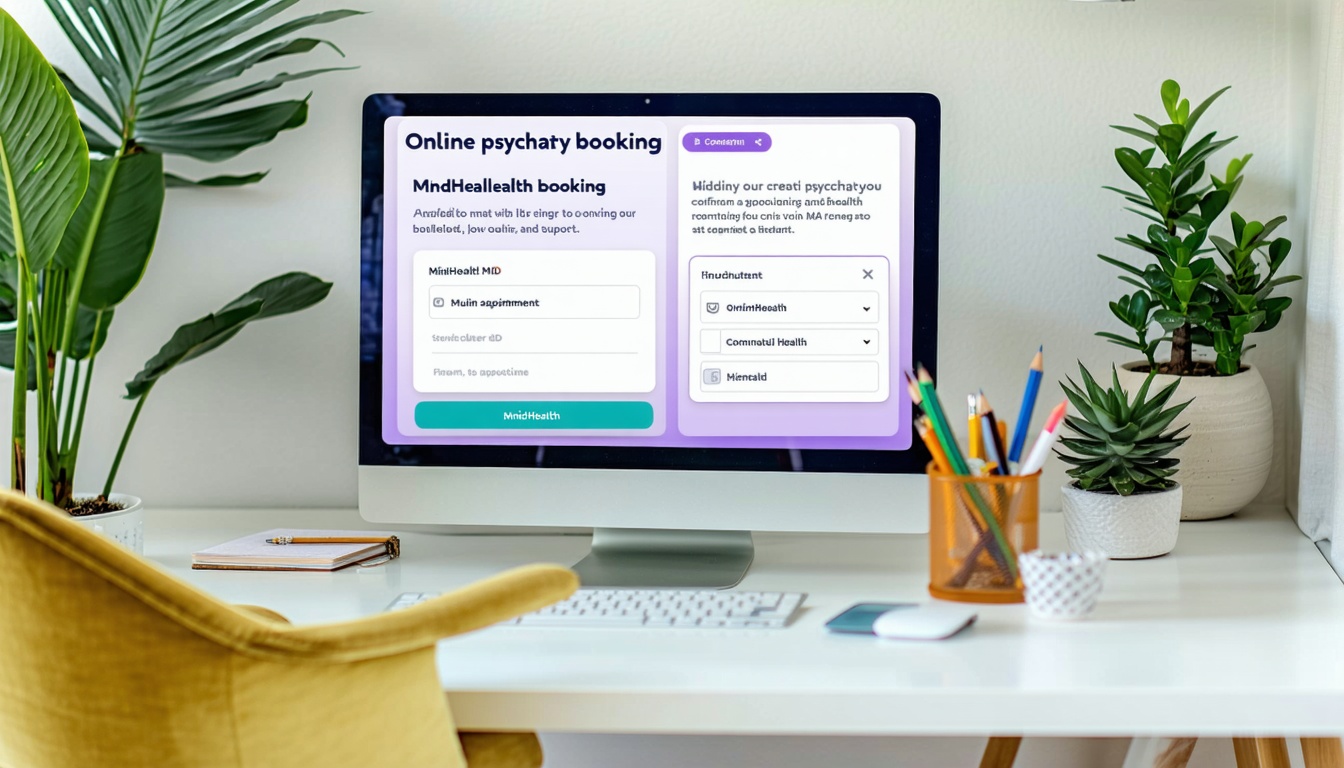Understanding Depression
Impact of Depression
Depression can significantly affect daily activities such as sleeping, eating, and working. It is a serious mental health condition that can impact anyone, regardless of age, sex, race, or income level. According to the National Institute of Mental Health (NIMH), the symptoms of depression can be persistent and debilitating, making it essential for individuals to seek help.
1 in 6 women will experience depression in their lifetime, while 1 in 8 men will also face this condition, highlighting that it is a prevalent issue across genders. Despite this prevalence, men may be less likely to acknowledge and seek treatment for their depressive symptoms, which can result in underdiagnosis and insufficient care.
| Gender | Likelihood of Experiencing Depression |
|---|---|
| Women | 1 in 6 |
| Men | 1 in 8 |
Factors Influencing Depression
Several factors can contribute to the onset of depression. These include genetic predispositions, biological changes, environmental influences, and psychological factors. Specifically, depression may co-occur with other mental disorders or chronic illnesses, such as diabetes, cancer, and heart disease, thereby complicating these existing conditions [1].
Some of the factors influencing depression are:
- Biological Factors: Family history may indicate a genetic predisposition to depression.
- Environmental Influences: Stressful life events, trauma, or significant life changes can trigger depressive episodes.
- Psychological Factors: Personality traits and early childhood experiences can impact mood regulation and coping mechanisms.
Understanding the multifaceted nature of depression helps you or your loved ones identify effective paths to treatment, including options like natural depression treatment. For comprehensive care, consider exploring options such as transcranial magnetic stimulation therapy for effective relief.
Conventional Treatments for Depression
When addressing depression, you should be aware of the conventional treatments commonly utilized. These typically encompass psychotherapy and prescription medications. Each approach has its own strengths and can be effective depending on individual circumstances and severity of symptoms.
Psychotherapy
Psychotherapy, often referred to as psychological counseling, is a core treatment for depression. Conducted by a psychiatrist, psychologist, or another qualified mental health professional, this method focuses on changing habits and thought patterns that contribute to depression. Through psychotherapy, you can explore your emotions, identify underlying issues, and develop coping strategies.
The effectiveness of psychotherapy is often enhanced when combined with medication. Studies indicate that many individuals experience the best outcomes with a dual approach, as it addresses both emotional and chemical components of depression [2].
| Psychotherapy Type | Focus | Benefits |
|---|---|---|
| Cognitive Behavioral Therapy (CBT) | Identifying and changing negative thinking | Proven to reduce symptoms of depression |
| Interpersonal Therapy (IPT) | Improving personal relationships | Helps resolve interpersonal issues contributing to depression |
| Dialectical Behavior Therapy (DBT) | Emotion regulation and distress tolerance | Particularly useful for those with intense emotional responses |
Antidepressant Medications
Antidepressant medications are another vital component of conventional treatment for depression. These drugs primarily function by altering the balance of neurotransmitters in the brain that regulate mood. Common classes include selective serotonin reuptake inhibitors (SSRIs), serotonin-norepinephrine reuptake inhibitors (SNRIs), and atypical antidepressants.
While antidepressants can be effective in alleviating symptoms of depression, they may take several weeks to show results and can occasionally lead to side effects. Close monitoring by your healthcare provider is essential to find the right medication and dosage for you. If you’re seeking a more targeted option, Transcranial Magnetic Stimulation (TMS) might be suitable, particularly if traditional methods have not yielded satisfactory outcomes. For more information on this innovative treatment, consider exploring transcranial magnetic stimulation therapy.
| Medication Class | Common Examples | Mechanism of Action |
|---|---|---|
| SSRIs | Fluoxetine (Prozac), Sertraline (Zoloft) | Increases serotonin levels in the brain |
| SNRIs | Venlafaxine (Effexor), Duloxetine (Cymbalta) | Increases levels of serotonin and norepinephrine |
| Atypical Antidepressants | Bupropion (Wellbutrin), Mirtazapine (Remeron) | Works on various neurotransmitter systems |
Conventional treatments for depression are vital to understanding the broader spectrum of natural depression treatment options. You might find that combining these approaches with alternative therapies, such as meditation or nutritional counseling, can enhance overall effectiveness.
Alternative Therapies for Depression
Exploring alternative therapies can be an effective way to complement conventional treatments for depression. These options can provide additional relief and support for symptom management.
Mind-Body Medicine
Mind-body medicine focuses on the connection between mental and physical health. Techniques such as mindfulness, meditation, tai chi, and qigong have been shown to help improve depressive symptoms with fewer adverse effects when compared to traditional pharmacological treatments. According to an article in the NCBI, these interventions can enhance your psychological well-being, self-awareness, and overall mood.
| Technique | Benefits |
|---|---|
| Mindfulness Meditation | Reduces stress and improves focus |
| Tai Chi | Enhances self-awareness and reduces depression |
| Qigong | Improves psychological well-being |
Nutritional Counseling
Nutritional counseling is another vital aspect of natural depression treatment. Your diet can significantly impact your mood and mental health. It encourages awareness of food choices and can help manage depressive symptoms through the incorporation of nutrient-rich foods, while also addressing emotional eating habits. The practice of mindful eating enhances sensory experiences during meals, promoting awareness of thoughts and feelings associated with eating, which contributes to better emotional regulation [3].
| Nutrient | Effects on Mood |
|---|---|
| Omega-3 Fatty Acids | May reduce depressive symptoms |
| B Vitamins | Essential for brain health and mood regulation |
| Antioxidants | Protects against oxidative stress linked to depression |
Physical Activity
Regular physical activity is a beneficial strategy for managing mild to moderate depression. Exercise, including simple activities like walking or gardening, can release endorphins that improve mood and help alleviate symptoms of depression. Many studies recommend at least 30 minutes of aerobic exercise three times a week for optimal effects [4]. The Mayo Clinic also highlights that engaging in any physical activity can provide mental health benefits, as it increases body temperature and reduces chemicals in the immune system that can worsen depressive symptoms [5].
| Activity Type | Recommended Duration |
|---|---|
| Aerobic Exercise (e.g., running, walking) | At least 30 minutes, 3 times a week |
| Low-Intensity Activities (e.g., gardening) | As often as possible |
These alternative therapies can work synergistically with traditional treatments, such as transcranial magnetic stimulation therapy, to provide a well-rounded approach to managing depression.
Holistic Approaches to Depression
Exploring holistic approaches can provide valuable support in managing and alleviating symptoms of depression. These methods focus on the interconnectedness of the mind, body, and spirit, offering natural alternatives to conventional treatments. Three significant holistic practices include meditation, yoga, and mindful eating.
Meditation Benefits
Meditation is a powerful tool for managing mental health, including depression. Research indicates that regular meditation practice can help in reducing symptoms of stress, enhance focus, and boost productivity, while also aiding in the management of mental health conditions such as anxiety and depression.
Different forms of meditation, including mindfulness, breathing techniques, and loving-kindness meditation, allow for customization to fit personal preferences and comfort levels. Regular practice may lead to:
| Benefits of Meditation | Description |
|---|---|
| Reducing Inflammation | Meditation and mind-body techniques can significantly lower inflammation in the brain and body. |
| Enhanced Brain Structure | Studies show increased gray matter in areas of the brain associated with cognitive functions after 7 weeks of meditation. |
| Activating the Vagus Nerve | Meditation can stimulate the vagus nerve, which is connected to mood regulation. |
These benefits contribute to an overall improvement in mental well-being.
Yoga and its Effects
Yoga combines physical movement, breath control, and meditation, which provides comprehensive benefits for mental health. It has been shown to improve self-awareness and reduce negative emotional reactions, making it an effective practice for managing depression.
The practice of yoga offers various advantages:
| Yoga Benefits | Description |
|---|---|
| Reducing Cortisol Levels | Yoga may help lower stress hormones, enhancing mood and promoting relaxation. |
| Improving Self-Confidence | Regular practice contributes to a sense of accomplishment and self-esteem, which can alleviate depressive symptoms. |
| Focusing on the Present | Yoga encourages mindfulness and living in the moment, helping to subdue ruminative thoughts that often accompany depression. |
In addition to these benefits, other practices like tai chi and qigong can also yield positive effects on mental health.
Mindful Eating Practices
Mindful eating is an emerging approach to tackling eating habits and emotional connections to food. By focusing on the sensory experience of eating and being aware of thoughts and feelings during meals, individuals can prevent emotional eating, which is often linked to depression.
Key aspects of mindful eating include:
| Mindful Eating Components | Description |
|---|---|
| Awareness of Sensory Elements | Paying attention to flavors, textures, and smells can enhance the eating experience and foster a healthier relationship with food. |
| Emotional Awareness | Understanding emotional triggers related to eating can help in managing compulsive eating tendencies associated with depression. |
Incorporating these holistic approaches into your routine can support your mental health and well-being. If you are interested in exploring clinical options, consider learning about transcranial magnetic stimulation therapy as an effective natural depression treatment.
Treatment-Resistant Depression
Identifying Treatment-Resistant Depression
If you or a loved one has been treated for depression but has not experienced improvement, you might be dealing with treatment-resistant depression. This condition typically arises when standard treatments such as antidepressant medications or psychotherapy fail to alleviate symptoms. According to the Mayo Clinic, treatment-resistant depression can manifest with symptoms that range from mild to severe, necessitating a variety of approaches to determine effective relief.
| Common Symptoms | Description |
|---|---|
| Persistent sadness | Feeling sad or down most days |
| Fatigue | Experiencing low energy levels and lethargy |
| Anhedonia | Loss of interest or pleasure in activities once enjoyed |
| Difficulty concentrating | Struggling to focus or make decisions |
You should track your symptoms and discuss them with your healthcare provider, as this could help identify whether you are dealing with treatment-resistant depression.
Approaches for Treatment-Resistant Cases
Navigating treatment-resistant depression often requires exploring alternative options beyond conventional therapies. Some approaches include:
-
Reevaluation of Medications: If you have already tried antidepressants, it may be that the wrong dosage or type was prescribed. Collaborating with your healthcare provider can help refine your medication plan.
-
Psychotherapy: Engaging in psychological counseling led by a qualified professional might be beneficial. Many individuals find that a combination of psychotherapy and medication yields the best results. This therapy can efficiently address underlying issues that may contribute to persistent depression.
-
Transcranial Magnetic Stimulation (TMS): TMS is a non-invasive brain stimulation technique that has shown promise as an effective treatment for individuals with treatment-resistant depression. For more insights on TMS and its advantages, visit our article on transcranial magnetic stimulation therapy.
-
Medication Alternatives: Exploring adjunctive medications or treatments such as ketamine infusion therapy can also be considered. These treatments may offer new avenues for symptom relief.
Consult your physician for more options regarding drug-free depression treatment and non-invasive depression treatment.
Consulting a Healthcare Provider
In seeking relief from treatment-resistant depression, consulting a qualified healthcare provider is essential. A mental healthcare professional can help determine the most suitable course of action tailored to your specific needs.
-
Insurance Coverage: Before beginning any treatment, it is crucial to verify whether your insurance covers the recommended therapies [2].
-
Initial Consultations: For first-time evaluations or consultation regarding TMS, you should consider reaching out to a TMS treatment center or TMS therapy provider that can guide you through the process.
By addressing the issue of treatment-resistant depression with a knowledgeable provider, you increase your chances of finding effective solutions that can lead to lasting relief. Explore management options, be open about your experiences, and work collaboratively towards a better path to mental wellness.
References
- (NIMH)
- (Mayo Clinic)
- (NCBI)
- (Better Health Vic)
- (Mayo Clinic)
- (Psych Central)








